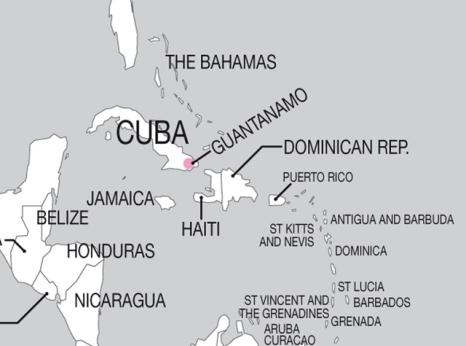Cuba: Release Yoruba Prisoners Of Conscience

Cubans of all ages and walks of life have been charged, put on trial, or given harsh sentences for peacefully participating in protests in July 2021 in largely unfair and opaque proceedings mostly held behind closed doors. Among those imprisoned are spouses Donaida Pérez Paseiro, Black activist, priest, and President of the Free Yoruba Association of Cuba ("Yorubas Libres de Cuba") and Loreto Hernández García, Black activist, priest, and Vice-President of the Free Yoruba Association of Cuba. The Yoruba religion is an African diaspora religion. They are imprisoned in Guamajal prison in Villa Clara province, central Cuba.
On 15 July 2021, police officers arrested Loreto Hernández García. His family maintains that authorities have placed him several times in solitary confinement, sometimes lasting 15 days, sometimes more. In February 2022, the Popular Municipal Court of Santa Clara (“Tribunal Municipal Popular de Santa Clara”) sentenced him to seven years in prison for “public disorder” and “contempt.” Donaida Pérez Paseiro was detained just a day after Loreto Hernández García. In February 2022, the Popular Municipal Court of Santa Clara sentenced her to eight years in prison for “public disorder”, “contempt”, and “assault” (“atentado”) against an official.
Based on the information available to Amnesty International, they should never have been charged with these offences. The organization notes that “contempt” and “public disorder” are charges frequently used in Cuba to limit the rights to freedom of expression and peaceful assembly. The government also use other charges such as “assault” or “damages” (“daños”) when trying to unlawfully crack-down dissent. Furthermore, in connection with the charge of assault, the organization found that was no concrete and individualized allegations against Donaida. There was a striking lack of evidence against her.
Both Black activists were tried along with 14 other protesters in an unfair trial. The judgement repeatedly refers to the protester’s political opposition to the government – something which should have no bearing in a criminal case – in a discriminatory and stigmatizing manner. Likewise, the judgment makes it clear that the defendants’ alleged role as leaders of the anti-government protests has been considered an element of criminal responsibility.
The judges appear to have relied almost exclusively on witness statements from law enforcement officials, a common occurrence in Cuba. At the same time, the judgment dismisses all the statements by the defendants’ and by the witnesses proposed by the defence, vaguely arguing that they contradicted what the police declared.
Additionally, in Cuba, defence lawyers must belong to an official organization which, according to many sources, is closely controlled by the State. Therefore, they can only act somewhat independently when representing their clients.
Independent human rights monitors and independent media were prevented from monitoring any of the trials of the 11 July protesters. Cuban authorities have never responded to Amnesty International’s requests to monitor the trials.
According to Loreto’s family, Loreto suffers various health problems, including diabetes and hypertension, which are not being treated in prison. In May, Loreto was hospitalized without a precise diagnosis, according to reports from his family published in the media. According to his family, Loreto is in a delicate state of health due to complications from diabetes. Currently, he is in the prisoners' wing of the Celestino Hernández Robau Provincial Hospital, known as Hospital Viejo, in Santa Clara, Cuba. The organization is concerned about allegations that he is not receiving adequate treatment.
Amnesty International considers Donaida Pérez Paseiro and Loreto Hernandez Garcia prisoners of conscience and calls for their immediate and unconditional release.
Amnesty International’s Prisoner of Conscience determination is based on the information available to Amnesty International regarding the circumstances leading to the person’s detention. In naming a person as a Prisoner of Conscience, Amnesty International is affirming that this person must be immediately and unconditionally released but is not endorsing past or present views or conduct by them.